Consumer Debt Vs. Commercial Debt
Managing your debt is an important responsibility as an individual or a business owner. Fortunately, consumer and commercial debt are not treated the same way. There are advantages and disadvantages to both. Someone who personally owes a debt to a company can rest assured that they are protected under federal law if it is given to a third-party collection agency. The agency cannot overstep any of the laws to obtain the amount owed.
However, in a commercial transaction, the legalities are looser as they are not federally regulated. The business that owes money also may be able to achieve an agreeable long-term payment plan that is not available in personal or consumer transactions.
Below is an overview of consumer (personal) and commercial (business) debt differences. Kinum, Inc. provides accounts receivable solutions for all scenarios and industries. With locations in Indianapolis, IN, Virginia Beach, VA, and Cleveland, OH, we offer debt collection services nationwide. Contact us today to learn more.
How Are They Different?
When trying to understand the difference between consumer and commercial debt, it’s important first to understand what each type of debt is. Simply put, commercial debt is money owed from one business to another, and consumer debt is when an individual owes money to a business.
Consumer Debt
Consumer debt refers to any money that you owe that isn’t business-related. For example, if you have credit card debt, medical bills, auto loans, or a mortgage, these are considered personal debts because they aren’t related to your company’s finances. Consumer debt is often “revolving,” meaning you have a set limit you can borrow, and the lender requires you to pay it back quickly to bring your balance to zero.
Collection agencies are held to strict laws regarding consumer debt collections to ensure the consumer’s rights are protected and that the business legally receives its owed payments. The federal laws involved are the Fair Debt Collections Practice Act (FDCPA), Health Insurance Portability and Accountability Act (HIPAA), Fair Credit Reporting Acting (FCRA), and the Telephone Consumer Protection Act (TCPA).
Commercial Debt
Commercial debt refers specifically to any money owed by a business entity for services rendered or goods purchased for use in its operations. Commercial debt comes in all sizes and shapes. Most commercial debt is on a “Net 30” billing basis. This means the business has 30 days from the invoice to pay the full amount. This credit line is rarely if ever, secured by collateral.
However, if collateral is involved, then the business owner could be at risk of losing personal property. Another instance when the business owner could be liable for a commercial debt is if they personally cosigned on a loan. Additionally, if the business owner guarantees an obligation of their corporation, the creditor may be able to legally go after their personal assets.
Commercial debt collection agencies are not held to the same standards as consumer debt collection agencies. State and industry standards often regulate commercial collection agencies rather than the FDCPA, partially increasing their leniency and payment options.
Recapping the Three Key Differences
Consumer Debt
- An individual owes a business money for goods or services rendered
- The consumer is protected by federal laws such as FDCPA, HIPAA, FCRA, and TCPA
- Revolving debt – the consumer has a limited amount they can borrow, and they must pay it back quickly
Commercial Debt
- A business owes another business money for goods or services
- Loosely regulated by the state and industry standards instead of the government
- Term debt – business is allowed a long-term payment plan and a set interest rate
Contact Kinum, Inc.
Kinum, Inc. provides consumer and commercial accounts receivable services nationwide. We understand that businesses want to protect their relationships with other businesses and consumers along with their financial income. Our team of highly skilled professionals can maneuver the debt collection territory to ensure relationships can remain intact. Please reach out with your business-to-consumer (B2C) or business-to-business (B2B) debt concerns and allow us to provide a solution.






